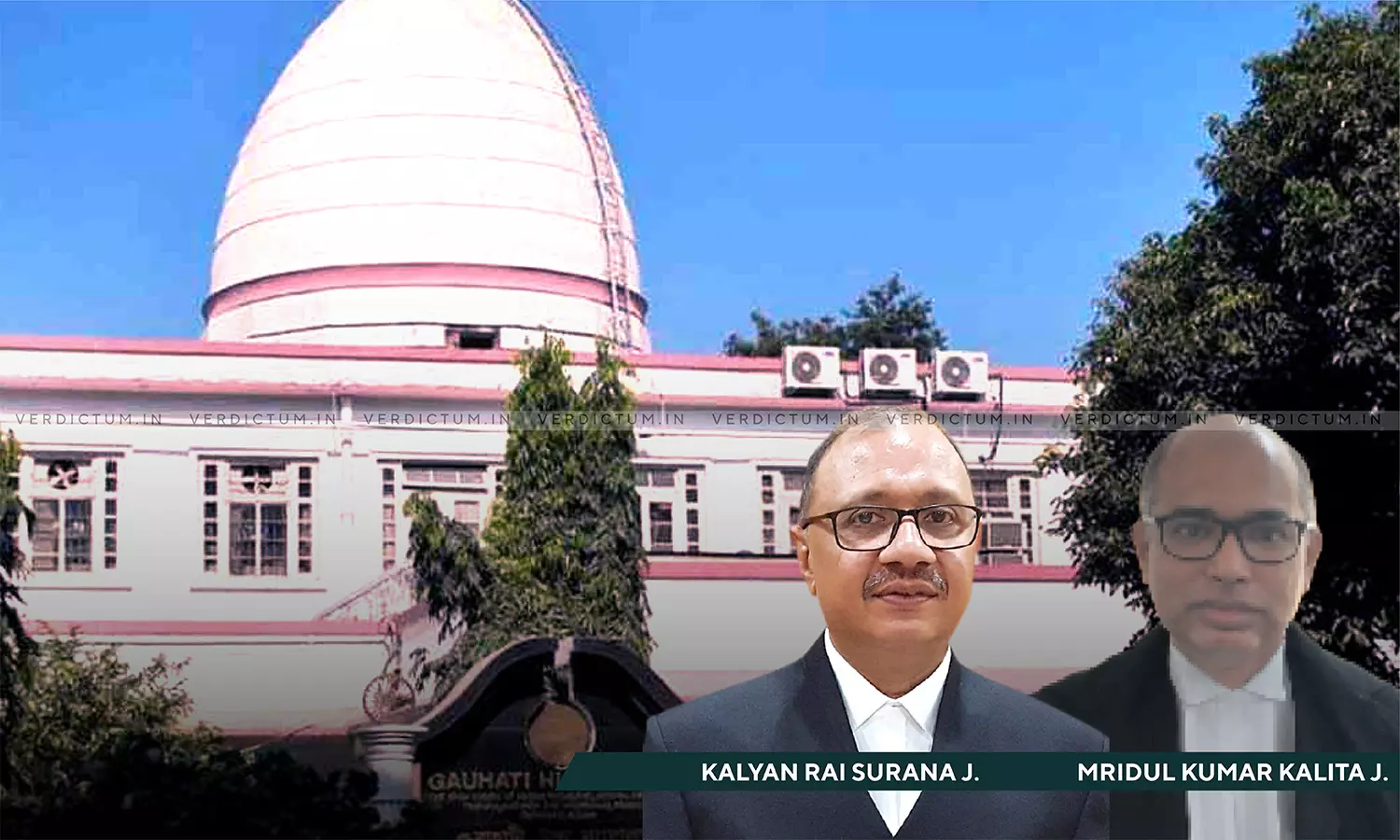
Seniority Must Be Counted From Initial Joining Date If Ad Hoc Appointment Made As Per Rules & Appointee Continues In Post Till Regularisation: Gauhati HC
 |
|The Gauhati High Court reiterated that the seniority must be counted from the date of initial joining if an ad hoc appointment is made as per the rules and the appointee continues in the post till his regularisation.
The Court was deciding a writ appeal preferred against the order of the Single Judge by which the order of the Director of Secondary Education, Assam was quashed.
A Division Bench of Justice Kalyan Rai Surana and Justice Mridul Kumar Kalita observed, “In the case of “Ch. Narayana Rao. v. Union of Indi & Ors,” (2010) 10 SCC 247, and “Union of India v. Dharam Pal & Ors.,” (2009) 4 SCC 170, the Supreme Court of India, by following the decision of the Constitution Bench in the case of “Direct Recruit Class II Engg. Officers Assn. Vs. State of Maharashtra” reported in (1990) 2 SCC 715, has held that where ad hoc appointment is made by following the procedure laid down by the rules and the appointees continues in the post till his regularisation, seniority must be counted from the date of initial joining.”
Advocate I.H. Saikia appeared for the appellant while Senior Advocate J. Roy, Advocate D. Das, and Standing Counsel H. Teronpi appeared for the respondents.
In this case, the appellant was allowed by the order of the Director of Secondary Education, Assam to hold the charge of the Principal of Paschim Barigog Dhirdutta Higher Secondary School, Nalbari, Assam from April 1, 2023. However, the respondent filed a writ petition against the said order. In the writ petition, the respondent had contended that the appellant was junior to him in service and the appointment order was passed disregarding the seniority. The Single Judge allowed his petition and set aside the appointment order. Being aggrieved, the appellant was before the High Court.
The High Court in the above regard, said, “… the Court is of the opinion that it is well settled principle of law that even if the issues are not framed on a particular point, but if the contesting parties have participated in a long debate before this Court on the seniority position of the respondent no.1, despite full knowledge of the fact that the School Education Department has not filed their affidavit-in-opposition in W.P.(C) 3544/2024, it would not be appropriate to leave the issue raised by the learned counsel for the appellant undecided qua this appeal.”
The Court noted that there are no materials available to suggest that the appointment of the respondent was illegal in any manner whatsoever.
The Court further held that the period from date of joining till the date of issuance of order issued by the Inspector of Schools has to be considered for calculating seniority.
“Thus, in light of the discussions above, the challenge to the seniority position of the respondent no.1, qua this appeal, fails. The finding on this point is without prejudice to the parties in the proceeding of W.P. (C) 3544/2024”, it added.
The Court also observed that the appellant failed to show that the impugned decision of the Single Judge is perverse in any manner whatsoever, passed without considering the materials on record, or there is any patent error apparent on the face of the record or the judgment is against the established or well settled principle of law.
“Hence, following the dictum of the Division Bench of this Court in the case of “Assam State Electricity Board v. Surya Kanta Roy” reported in (1994) 1 GLR 383, the Court is of the considered opinion that in light of the facts and law involved in this case in hand, the writ appellate Court will not interfere with the discretion of the Court of first instance and substitute its own discretion because the appellant has failed to demonstrate that the learned Single Judge has exercised its discretion arbitrarily or capriciously or perversely or where any settled principles of law was ignored”, it concluded.
Accordingly, the High Court dismissed the appeal.
Cause Title- Naren Chandra Deka v. Kalyan Das & Ors. (Neutral Citation: 2024:GAU-AS:10332-DB)